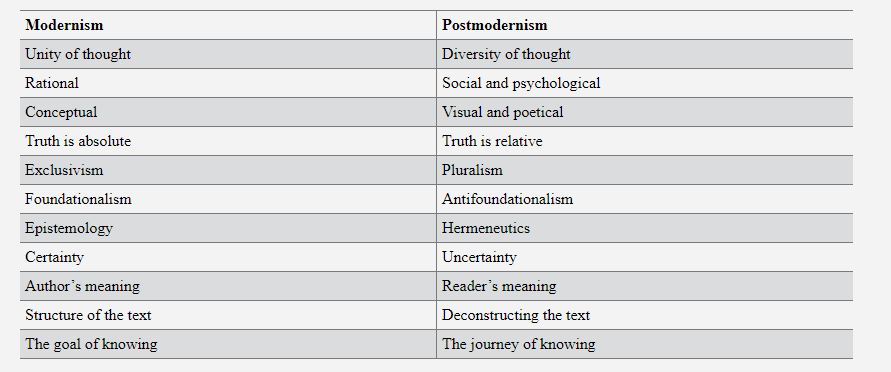RamistThomist
Puritanboard Clerk
Geisler, Norman. Christian Apologetics. Grand Rapids, MI: Baker Academic.
When I sat down to write this review, I debated on how I would classify it among apologetics textbooks. It is certainly more useful than Sproul’s Classical Apologetics, but it is not as good as his more popular Defending Your Faith. Parts of it are quite technical, and there is much repetition from his earlier works. On some sections, though, Geisler reigns supreme.
Part 1: Methodology
Skepticism: Hume said all meaningful propositions are reducible to two kinds: definitional (think mathematical) or empirical. Moreover, for Hume causality is based on custom, which comes from sense experience. From here God-talk moved to Kant’s practical agnosticism to logical positivism and to the literal dead end of Wittgenstein’s silence.
A new update to this volume is the section on Postmodernism.

Evaluation of agnosticism. It is self-defeating. It says one can know enough about God (or reality) to know that we can’t know God (or reality). Geisler points out that if someone grants the premise that we can know reality, but not an infinite God, the conversation moves to a different field. It’s no longer complete agnosticism. Now the question focuses around whether God is finite or infinite, personal or impersonal.
Pace Hume, if everything were separate and disconnected as his atomism said, then he couldn’t make that statement for the affirmation of that statement since it implies some unity of meaning. Furthermore, his attack on analogy doesn’t work. The Law of Analogy will always hold. To reiterate what Geisler said: an effect is similar to its cause (B → b). “The cause cannot give what it doesn’t have.” If someone were to deny this, he would have to deny all similarity. This cannot work because “unless there were some knowledge of the cause, there would be no basis for denying any similarity.”
Pace Kant, his statement comes down to we can’t know ultimate reality except that one facet of ultimate reality. He must already have knowledge of ultimate reality to say we can’t know it.
Pace Wittgenstein, it is self-defeating to express that the inexpressible can’t be expressed.
Criticisms of Religious Fideism
1) Confuses belief *in* God with belief *that* God exists. There is a difference between belief in God and supports for that belief in God.
Polytheism
Polytheism can be anything from Hinduism to Mormonism to Wicca. Of interest is the Mormon claim that each God was begotten by another God. If this is in fact what they teach, then it is open to the same attacks made on finite godism.
Plotinus, himself probably not a monotheist, has an argument that works well against the idea of many gods. All plurality presupposes a prior unity. “Thus many gods are not self-explanatory. What is the basis of their unity?” Pace Mormonism, there cannot be an endless series of many gods begetting other gods. We can’t say we were always here, for that violates the law of causality. If the universe isn’t eternal, then these lesser gods aren’t eternal. If they came into existence, they are just creatures.
Panentheism

Atheism
The only interesting criticism atheism has is whether the ontological argument backfires. Are existence statements necessary? Atheists say no. We can turn it around: is the statement “no existence statements are necessary” a necessary truth or not?
Another problem that comes up here and also with pantheism (and also to some criticisms of divine simplicity) is whether God’s being a necessary being makes creation necessary. Geisler responds: the only thing a necessary being must will is the necessity of his own nature.
Theism
Geisler has an extended, almost overwhelming, point-by-point case for theism. There is no way I can cover it here. Here are some links.
It is worth noting some Christian conclusions from his case on being. If God is a necessary being, then:
We are not at Christian theism yet. We are getting close. Such a God above is ultimate. Failure to worship this God at the very least is idolatry, since you are not giving ultimate commitment to the ultimate.
The final section of the book is a series of test cases on Christian theism. Of most importance is the defense of miracles. Pace Hume, past regularity does not rule out a future singularity.
Moreover, miracles do not attack science. Not all science is empirical science. Forensic science, for example, involves proleptic leaps to the unknown. Forensic science cannot test things in a lab.
Miracles occur in the natural world, but they are not of the natural world. The phrase “all events that are natural occur in the natural world” cannot be converted into “all events that occur in the natural world are natural.”
Conclusion
This is not the first apologetics book I would recommend. It is not even the first book by Geisler I would recommend. The careful student is urged to study his Introduction to Philosophy before diving into this work.
When I sat down to write this review, I debated on how I would classify it among apologetics textbooks. It is certainly more useful than Sproul’s Classical Apologetics, but it is not as good as his more popular Defending Your Faith. Parts of it are quite technical, and there is much repetition from his earlier works. On some sections, though, Geisler reigns supreme.
Part 1: Methodology
Skepticism: Hume said all meaningful propositions are reducible to two kinds: definitional (think mathematical) or empirical. Moreover, for Hume causality is based on custom, which comes from sense experience. From here God-talk moved to Kant’s practical agnosticism to logical positivism and to the literal dead end of Wittgenstein’s silence.
A new update to this volume is the section on Postmodernism.
Evaluation of agnosticism. It is self-defeating. It says one can know enough about God (or reality) to know that we can’t know God (or reality). Geisler points out that if someone grants the premise that we can know reality, but not an infinite God, the conversation moves to a different field. It’s no longer complete agnosticism. Now the question focuses around whether God is finite or infinite, personal or impersonal.
Pace Hume, if everything were separate and disconnected as his atomism said, then he couldn’t make that statement for the affirmation of that statement since it implies some unity of meaning. Furthermore, his attack on analogy doesn’t work. The Law of Analogy will always hold. To reiterate what Geisler said: an effect is similar to its cause (B → b). “The cause cannot give what it doesn’t have.” If someone were to deny this, he would have to deny all similarity. This cannot work because “unless there were some knowledge of the cause, there would be no basis for denying any similarity.”
Pace Kant, his statement comes down to we can’t know ultimate reality except that one facet of ultimate reality. He must already have knowledge of ultimate reality to say we can’t know it.
Pace Wittgenstein, it is self-defeating to express that the inexpressible can’t be expressed.
Criticisms of Religious Fideism
1) Confuses belief *in* God with belief *that* God exists. There is a difference between belief in God and supports for that belief in God.
Polytheism
Polytheism can be anything from Hinduism to Mormonism to Wicca. Of interest is the Mormon claim that each God was begotten by another God. If this is in fact what they teach, then it is open to the same attacks made on finite godism.
Plotinus, himself probably not a monotheist, has an argument that works well against the idea of many gods. All plurality presupposes a prior unity. “Thus many gods are not self-explanatory. What is the basis of their unity?” Pace Mormonism, there cannot be an endless series of many gods begetting other gods. We can’t say we were always here, for that violates the law of causality. If the universe isn’t eternal, then these lesser gods aren’t eternal. If they came into existence, they are just creatures.
Panentheism
Atheism
The only interesting criticism atheism has is whether the ontological argument backfires. Are existence statements necessary? Atheists say no. We can turn it around: is the statement “no existence statements are necessary” a necessary truth or not?
Another problem that comes up here and also with pantheism (and also to some criticisms of divine simplicity) is whether God’s being a necessary being makes creation necessary. Geisler responds: the only thing a necessary being must will is the necessity of his own nature.
Theism
Geisler has an extended, almost overwhelming, point-by-point case for theism. There is no way I can cover it here. Here are some links.
It is worth noting some Christian conclusions from his case on being. If God is a necessary being, then:
- He is changeless. What has potentiality can change.
- He is non-temporal. Space and time measure positions of change.
- There is only one necessary existence. If there were two Pure Acts, then they would have to have some real potentiality for change, otherwise they would be identical. If they were identical, then they would be the same thing. Yet, a necessary being cannot have potential; therefore, there is only one.
- Such an existence is simple. Something that has parts would have to have a greater something to put those parts together.
- Similar arguments can be used to prove the infinite and uncaused nature.
We are not at Christian theism yet. We are getting close. Such a God above is ultimate. Failure to worship this God at the very least is idolatry, since you are not giving ultimate commitment to the ultimate.
The final section of the book is a series of test cases on Christian theism. Of most importance is the defense of miracles. Pace Hume, past regularity does not rule out a future singularity.
Moreover, miracles do not attack science. Not all science is empirical science. Forensic science, for example, involves proleptic leaps to the unknown. Forensic science cannot test things in a lab.
Miracles occur in the natural world, but they are not of the natural world. The phrase “all events that are natural occur in the natural world” cannot be converted into “all events that occur in the natural world are natural.”
Conclusion
This is not the first apologetics book I would recommend. It is not even the first book by Geisler I would recommend. The careful student is urged to study his Introduction to Philosophy before diving into this work.


